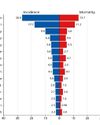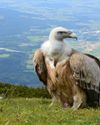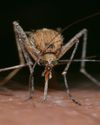
The study was supported by the National Institutes of Health's Brain Research Through Advancing Innovative Neurotechnologies (BRAIN) Initiative and published in Nature Neuroscience. Researchers worked with 20 patients who were undergoing intracranial recording of brain activity to guide surgery for treatment of their drugresistant epilepsy. They looked at how the patients' brain activity was affected when shown film clips containing different types of cognitive boundaries transitions thought to trigger changes in how a memory is stored and that mark the beginning and end of memory files in the brain.
The first type, referred to as a soft boundary, is a video containing a scene that then cuts to another scene that continues the same story. For example, a baseball game showing a pitch is thrown and, when the batter hits the ball, the camera cuts to a shot of the fielder making a play. In contrast, a hard boundary is a cut to a completely different story imagine if the batted ball were immediately followed by a cut to a commercial.
This story is from the March - April 2022 edition of Scientific India.
Start your 7-day Magzter GOLD free trial to access thousands of curated premium stories, and 9,000+ magazines and newspapers.
Already a subscriber ? Sign In
This story is from the March - April 2022 edition of Scientific India.
Start your 7-day Magzter GOLD free trial to access thousands of curated premium stories, and 9,000+ magazines and newspapers.
Already a subscriber? Sign In

Building world's 1st pyramid
In a preprint study published this summer, researchers proposed that ancient Egyptians built the world's first pyramid the 4,700-year-old Step Pyramid of Djoser, which sits on Egypt's Saqqara plateau using a \"modern hydraulic system\" powered by a long-gone branch of the Nile River.

Climate change arms the world, ovarian cancer pulls the trigger.It's time we disarm them both
Climate change, driven by human activities, leads to environmental changes such as rising temperatures, altered weather patterns, and increased pollution.

Climate Change Added 18 mph to Hurricane Wind Speeds over Past 5 Years
High ocean temperatures caused by global warming boosted maximum intensities for most storms between 2019 and 2023, as well as for every 2024 hurricane.

How Indian Vulture Decline Led to 500,000 Deaths in 5 Years
Once a common sight across India, vultures were abundant scavengers, often seen circling landfills in search of carcasses.

Understanding Monkeypox: Insights and Implications
Monkeypox, a viral zoonotic disease, has gained significant attention in recent years due to its re-emergence and sporadic outbreaks globally.

AI predicts that most of the world will see temperatures rise to 3°C much faster than previously expected
Three leading climate scientists have combined insights from 10 global climate models and, with the help of artificial intelligence (AI), conclude that regional warming thresholds are likely to be reached faster than previously estimated.

Infrared Radiation: A New Player In Mosquito Host-Seeking
The sound of mosquitoes is all around us when the sun sets and the air gets warm and sweltering.

Fish Oil May Benefit to Cure Alzheimer's, disorder: new findings
The benefits of fish and fish oil consumption are well-known in medical science as fish is considered a precious food resource that provides sufficient nutrition to humans.

A new class of antivirals could help prevent future pandemics
The arrival of Paxlovid in December 2021 marked another turning point in the COVID-19 pandemic an effective antiviral that has since successfully treated millions.

Turning carbon emissions into methane fuel
Chemists have developed a novel way to capture and convert carbon dioxide into methane, suggesting that future gas emissions could be converted into an alternative fuel using electricity from renewable sources. Carbon dioxide (CO2) is a greenhouse gas that accounts for a large part of Earth's warming climate, and is produced by power plants, factories and various forms of transportation.